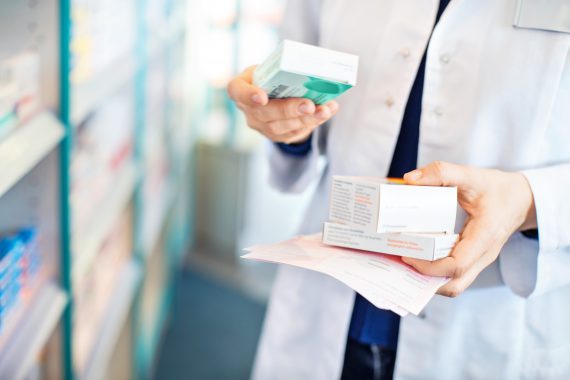NHS England will monitor the Pharmacy First service after its launch for any potential impact on antimicrobial resistance.
The scheme, which will launch on 31 January subject to the ‘appropriate digital systems being in place’, will allow pharmacies to consult and prescribe in relation to seven common conditions, in a bid to free up GPs’ time.
Community Pharmacy England (CPE), which negotiated seven different Patient Group Directions (PGDs) to allow medicines to be supplied to patients who meet certain criteria, said these allow community pharmacists to supply antimicrobials ‘only where clinically appropriate’ without ‘increasing the risks of antimicrobial resistance’.
But when the scheme was announced GPs told Pulse that there are concerns around antibiotic stewardship.
And when the plans were first revealed, the BMA argued that making it easier to access antibiotics wouldn’t be good for the patients nor would it reduce pressures on GPs, and it could lead to ‘overusing antibiotics’, making them less effective.
During a webinar last week (14 December) NHS England said it will monitor the service for any impact on antimicrobial resistance so that ‘any needed mitigations’ can be ‘actioned quickly’.
Pallavi Dawda, head of delivery for community pharmacy clinical strategy, said: ‘We take the risk very seriously, we have done a lot of work up until now to develop the pathways and get the service ready to launch and we don’t plan to stop there.
‘We will be continuing to monitor the service post-launch to make sure we got it right. So that we can really track any potential impact on antimicrobial resistance and put in any mitigations.’
Antimicrobial resistance risk mitigations within the scheme include: no financial incentive to supply antibiotics, a randomised controlled trial and digital surveillance (prescribing/dispensing reports).
The service specification document also said that if ‘concerns emerge’ regarding antimicrobial resistance or patient safety, NHS England ‘reserves the right to withdraw all or any part of this service with immediate effect’.
NHS England added that GPs should refer patients to the Pharmacy First service as per the former GP Community Pharmacist Consultation Service, instead of signposting them.
Ms Dawda said: ‘Referrals do help the pharmacy to manage their workload to make sure that they are making the most efficient use of their time – and inevitably will be able to see more patients that way as well.
‘You are handing over that clinical care as well for that patient and the pharmacy takes control of that patient and the clinical responsibility until that referral is completed.’
Last week, NHS England said it is not confident IT solutions will be in place for the planned 31 January rollout of Pharmacy First.
Following the scheme’s announcement last month, the Doctors’ Association UK urged the Government to urgently review why pharmacies are paid ‘more than double’ per consultation compared with GPs.
The Government also announced it is considering changes to medicine supervision requirements to allow the provision of more clinical services in pharmacies and free up GP appointments.
Ministers said that the new proposals would allow pharmacists to ‘safely delegate more’ and so ‘spend more time delivering patient-facing clinical services’, in turn ‘freeing up more appointments’ in general practice.















Given that Pharmacy First scripts will form a very small proportion of total antibiotic prescribing, any impact on resistance will be slow to emerge, probably long after the monitoring will have concluded?